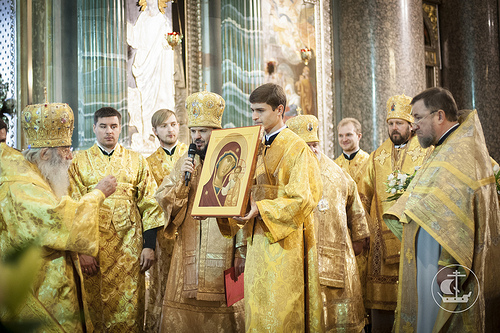“Faith is to believe what you do not see; the reward of this faith is to see what you believe.” — St. Augustine of Hippo
Christianity, one of the three major Abrahamic religions, developed out of Judaism in the early first century C.E., and quickly spread throughout the ancient world, becoming the official state religion of the Roman Empire in 380 C.E. Christianity developed into a major influence in the Western world, and remains so today.
“Want to keep Christ in Christmas? Feed the hungry, clothe the naked, forgive the guilty, welcome the unwanted, care for the ill, love your enemies, and do unto others as you would have done unto you.”- Steve Maraboli
Christians follow the teachings of Jesus Christ, a preacher and prophet who lived in Roman-occupied Judea in the early first century C.E. During his life, Jesus preached God’s love for mankind, God’s love for the poor and unloved, a salvation that does not take into account race, class or station; love of the neighbor and the coming of the Kingdom of God on Earth. In his early thirties, Jesus was arrested by the Roman governor and executed outside Jerusalem through crucifixion; followers believe that this was God’s great saving act, and he rose from the dead three days later in fulfillment of the promises of ancient Jewish prophets such as Isaiah.
 Orthodox Christians with an icon.
Orthodox Christians with an icon.
“If thou shalt confess with thy mouth the Lord Jesus, and shalt believe in thine heart that God hath raised Him from the dead, thou shalt be saved (Romans 10:9).
Currently, there are over 2.4 billion Christians in the world, adhering to thousands of individual sects and divisions; the three largest are the Roman Catholic Church, the Eastern Orthodox Church and the many Protestant branches. Beliefs regarding grace, Biblical interpretation, free will, original sin, the nature of Communion, and the sacraments differ greatly between these faiths, although all Christians basically believe that Jesus was both the prophesied Messiah and the divine Son of God, and that belief in Jesus is necessary for salvation and eternal life. Christians generally celebrate Communion, or the Eucharist, in remembrance of Jesus’ death and resurrection. While Catholics and some Orthodox divisions believe that Communion is the real presence of God, Protestants generally do not and celebrate it more as a memorial.
 Outdoor Evangelical Christian preacher.
Outdoor Evangelical Christian preacher.
If we believe that Jesus died and rose again . . . so shall we ever be with the Lord (I Thessalonians 4: 14,17).
Central among Christian teaching is the Trinity; the central role of sacraments; the importance of the Eucharist; the promise of eternal life for the faithful; the baptism of adherents; love for and service to the poor; apostolic succession; and the importance of both grace and good works.
“I didn’t go to religion to make me happy. I always knew a bottle of Port would do that. If you want a religion to make you feel really comfortable, I certainly don’t recommend Christianity.”– C.S. Lewis
More information on Christianity:
— Christianity @ Religious Tolerance
— Women in Ancient Christianity: Frontline— Official Site of The Vatican
— The Orthodox Church in America
— Patheos: What is Evangelical Christianity?
photo credit: The Cloisters – NY via photopin (license)
photo credit: 17 октября 2013, Именины митрополита Санкт-Петербургского и Ладожского Владимира via photopin (license)
photo credit: 2012 Festival of the Arts Grand Rapids Sunday June 03, 2012 6 via photopin (license)








